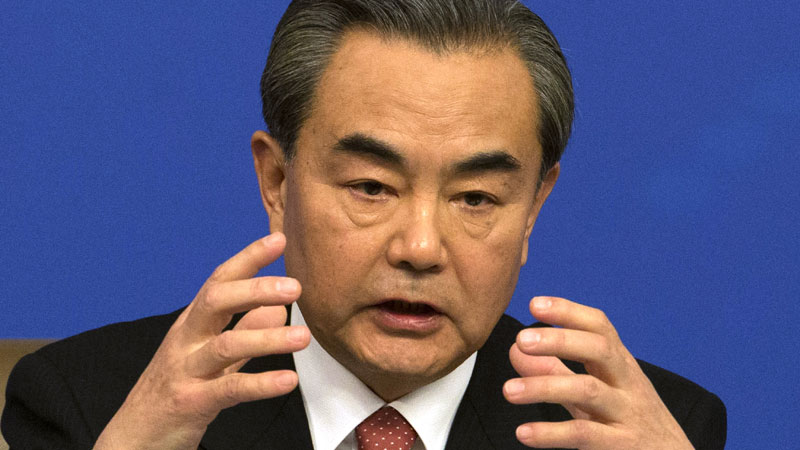China won’t budge on South China Sea sovereignty
BEIJING—China’s foreign minister on Tuesday took a hard line on the country’s claims to virtually all the South China Sea, saying Beijing won’t permit other nations to infringe on what it considers its sovereign rights in the strategically vital area.
Wang Yi, speaking to reporters at an annual news conference in Beijing, said that another nation’s claim to freedom of navigation in the region didn’t give it the right to do whatever it wanted—an apparent reference to the United States, which had sent naval ships past reefs where China had engaged in island-building.
Wang sought to deflect allegations China was militarizing the region by building military facilities on the artificial islands.
He said Beijing’s development there was defensive and that other nations were being militaristic—not China.
“China cannot be labeled as the most militaristic. This label is more suited to other countries,” Wang said.
China has come under fire from the United States and its allies in recent months over its land reclamation activities in the South China Sea, through which $5 trillion in ship-borne trade passes annually.
Beijing claims almost all of the South China Sea, but the Philippines, Brunei, Malaysia, Taiwan and Vietnam have overlapping claims.
The US Navy has carried out freedom of navigation exercises, sailing near disputed islands to underscore its rights to operate in the seas.
Those patrols, and reports that China is deploying advanced missiles, fighters and radar equipment on islands there, have led Washington and Beijing to trade accusations of militarizing the region.

Not free to run amok
Freedom of navigation does not equal “freedom to run amok,” Wang said.
US Defense Secretary Ash Carter has warned of “specific consequences” if China takes “aggressive” action in the region.
He has said the US military is increasing deployments to the Asia-Pacific region and has planned to spend $425 million through 2020 to pay for more exercises and training with countries in the region that were unnerved by China’s actions.
“In fact, based on the joint efforts of China and other regional countries, the South China Sea is currently one of the safest and freest shipping lanes in the world,” Wang said.
UN case
“China was the earliest to explore, name, develop and administer various South China Sea islands. Our ancestors worked diligently here for generations,” he added. “History will prove who is the visitor and who is the genuine host.”
In addition to reaffirming that South China Sea islands were an “integral” part of China’s territory that “every Chinese is obligated to defend,” Wang reiterated Beijing’s refusal to cooperate with an International Court of Arbitration case brought by the Philippines in The Hague over disputed claims in the area.
Manila has asked Beijing to respect the decision, which is expected in May.
But China has refused to recognize the case, insisting all disputes should be resolved through bilateral talks.
In his news conference, Wang reiterated that China was quite within its rights not to participate and accused unnamed others of being behind the case.
“The Philippines’ stubbornness is clearly the result of behind-the-scene instigation and political manipulation,” he said, without elaborating.
China has conducted a massive program in the South China Sea over the past two years of land reclamation, piling sand atop reefs then adding airstrips and military facilities.
Neighbors have complained that the work has raised tensions by changing the status quo in the area, where six Asian governments have overlapping claims and which include some of the world’s busiest sea-lanes.
When asked whether China would allow foreign journalists to visit those islands, Wang stressed that the area also were intended for civilian uses and that once they were completed, foreign journalists would be invited to visit. Reports from the wires
For comprehensive coverage, in-depth analysis, visit our special page for West Philippine Sea updates. Stay informed with articles, videos, and expert opinions.
